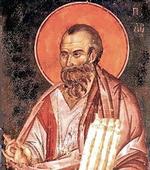Make your gift today!
Help keep Catholics around the world educated and informed.
Already donated? Log in to stop seeing these donation pop-ups.
Catholic World News News Feature
Protect religious freedom, Pope urges Mexican government September 23, 2005
A secular government should protect the religious liberty of its people, without showing partiality or prejudice, Pope Benedict XVI said on September 23 as he met with a new ambassador from Mexico to the Holy See.
The Holy Father accepted the diplomatic credentials of Luis Felipe Bravo Mena, the new Mexican envoy, on the same day that he received a group of visiting Mexican bishops at his summer residence in Castel Gandolfo.
The Pope noted that "great progress" has been made in relations between the Vatican and Mexico since the establishment of diplomatic relations in 1992. After first being established in 1864, relations were broken off in 1867, by Mexican President Benito Juarez. The establishment of a virulently anti-Catholic regime led to harsh persecution, particularly in the 1920s. The anti-clericalism of the regime endured well into the 1970s; priests were forbidden to wear clerical garb in public, and in 1979, when Pope John Paul II visited Mexico, then-President José Lopez Portillo pointedly referred to the Pontiff as "sir."
Nevertheless, Mexico was and remains a Catholic country, and in his remarks to the new ambassador Pope Benedict mentioned that a large majority-- over 90 percent-- of the country's people are members of the Catholic faith. Among the world's nations, only Brazil has a larger Catholic population.
Pope Benedict remarked that the Church shares many of the government's concerns for protecting the people's welfare. He mentioned the special need for guarding family life, noting that the family "needs special support, because in Mexico, as in other countries, its vitality and fundamental role are declining." He mentioned that emigration complicates the difficulties of building solid family life.
The Pope also spoke about the persistent scourge of drug trafficking, and spoke of the difficulties facing the indigenous Indian tribes of Mexico, "who for centuries have struggled to uphold their ancestral values and traditions."
Regarding the country's new secular state, the Holy Father warned against the temptation "to reduce the religious life of citizens to the private sphere, with no social or public expression." He observed that a truly secular government welcomes and protects the religious practices of its citizens.
The Pope closed his remarks by expressing his hope that the presidential elections of 2006 would further the growth of democracy in Mexico. The election of the nation's current leader, Vicente Fox, in July 2000, marked a watershed in two respects. Fox was the first openly Catholic president of independent Mexico, and the first leader in 71 years who was not a member of the long-ruling Institutional Revolutionary Party (PRI). The powerful PRI, which dominated the anti-clerical government for generations, could regain power in the nex election.
President Fox attended the funeral of Pope John Paul II, and after the election of Pope Benedict, he issued an "open and permanent' invitation for the new Pontiff to travel to Mexico.



